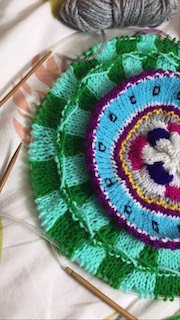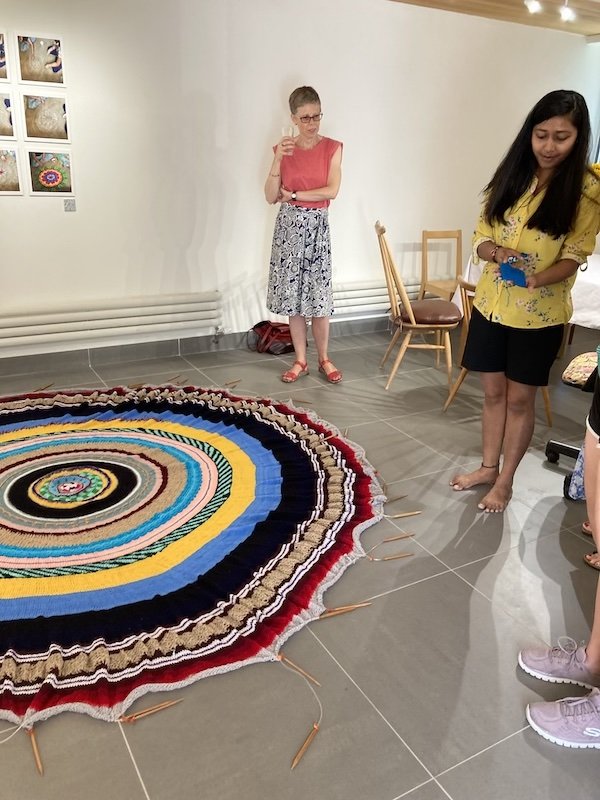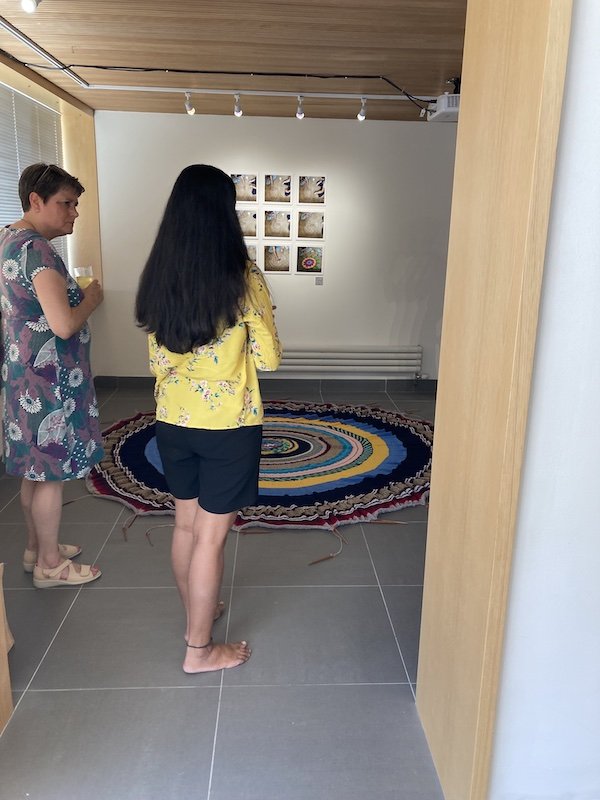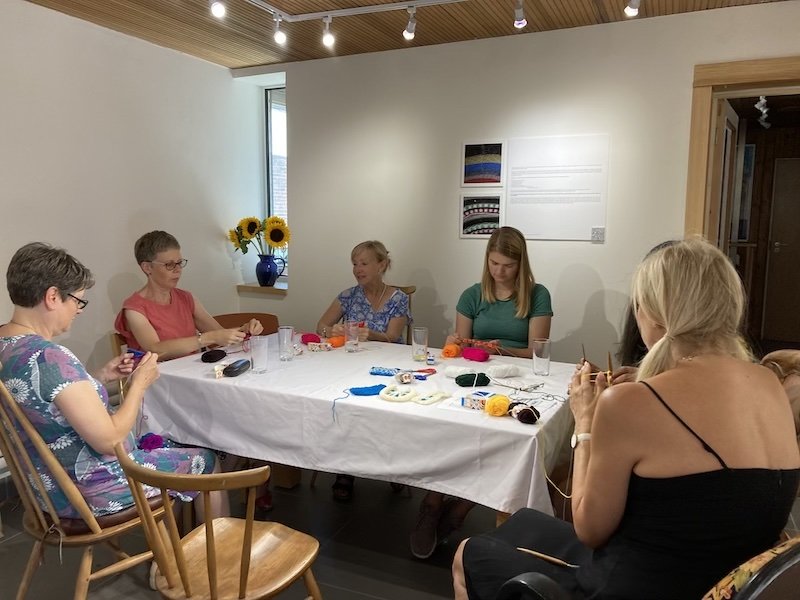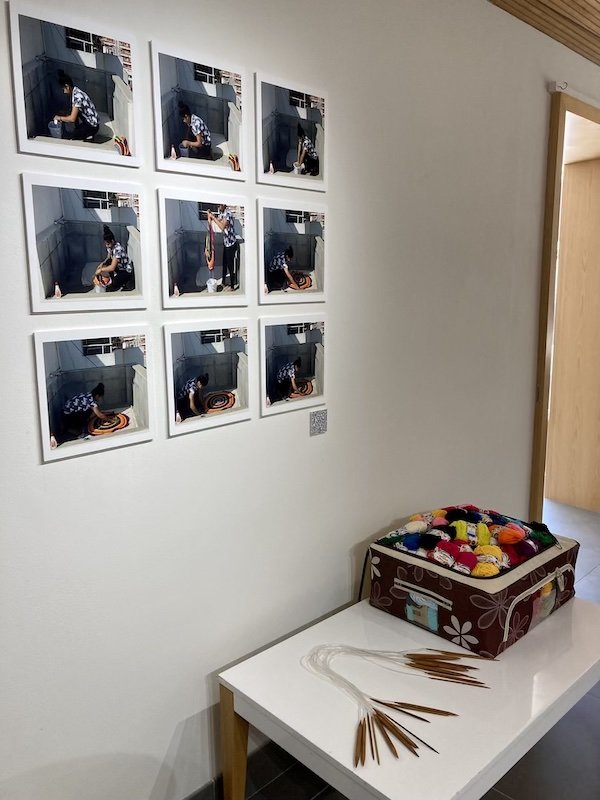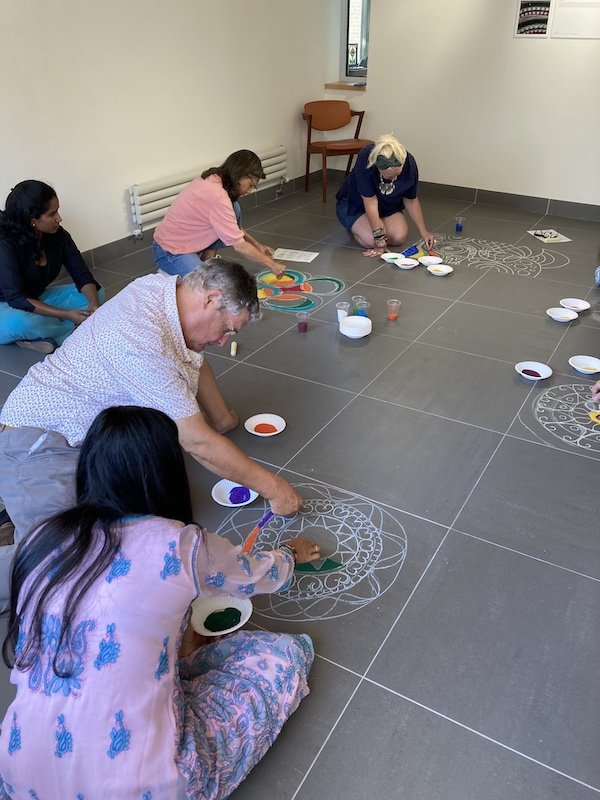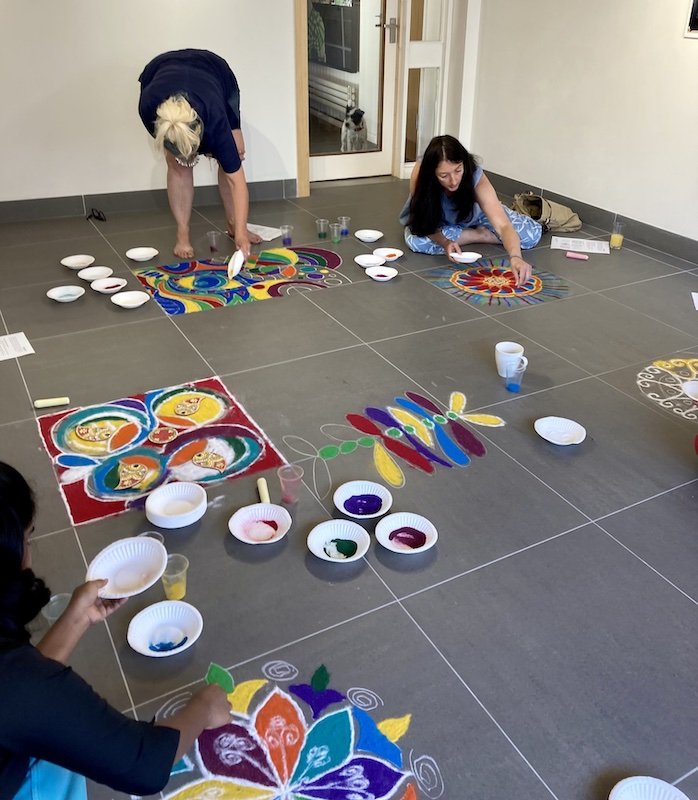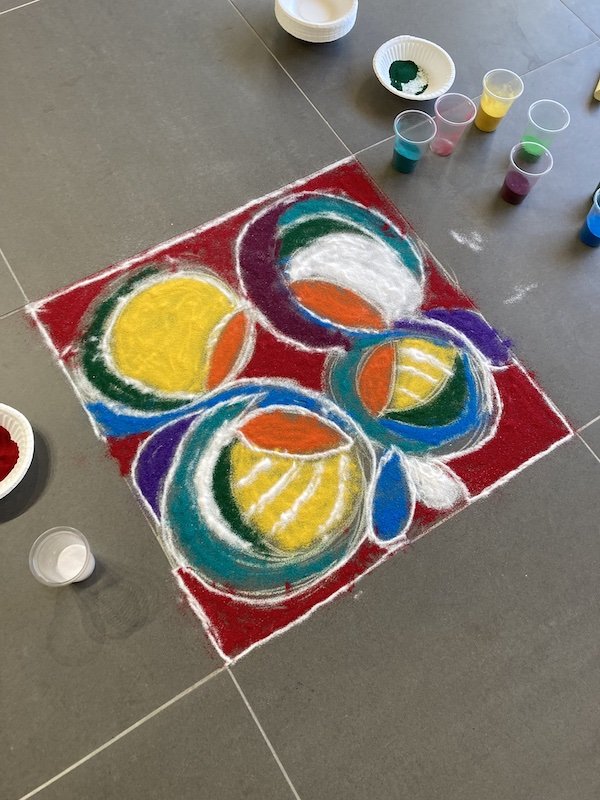Image by Amit Shah
Rangknit
Pooja Shah
10th to 20th August 2022
Gallery open 2-7pm daily
Pooja Shah is a PhD student at the School of Architecture, Faculty of Creative and Cultural Industries at Portsmouth University & ‘RangKnit’ is a solo show of works created during a practice-based doctoral research journey at the University of Portsmouth. ‘RangKnit’ marks a continuation of the artist’s interest in Rangoli, which has formed a pivotal part of her practice over the past three years as she has explored how her attachments with home (family), activities that are performed inside the home and her relationship with the interiors shift with the shift in cultural context.
Pooja knits intricate patterns seen in Indian Textiles using yarns and knitting needles. Lying somewhere between contemporary knitting practices and Interior design, these circles, concentric compositions create a complex world recording different movements of body, conversations and experiences. Her fascination with knitting dates back to 2013, when she first learnt to knit scarfs for herself and for her friends as a farewell present. When she began her PhD, she explored the history of knitting in the UK and Portsmouth –a practice that revealed an organic transition from making for self/family to building surfaces that can allow an interaction/conversation with others. Drawing from a variety of cultural and societal influences, she uses different yarns, colour and pattern palettes.
The main argument that Pooja attempts to make through her work is that ‘Home’ is not a mere place/space/feeling that is left behind –when a migrant travel far away from her/his homeland either temporarily or permanently, rather home can become a ‘practice’ that is continued into a different mode. In other words, she demonstrates how the knowledge she had gained through making Rangoli (at her homeland while growing up) can be transmitted and transformed into knitting (a traditionally western practice) so that she can feel at home in the UK.
Having worked at Jacob Hashimoto studio, a New York based artist, who shares half- Japanese and half-Irish roots, she learnt a great deal on how to fuse two different cultures together (asking questions such as: what happens when one culture overshadows the other and how/where can an element from a particular culture be left loose in order for it to breath and grow).
WORKSHOPS
Rangnit Corner * FREE Event * Jack House Gallery
Knitting workshop is a part of a solo exhibition ‘RangKnit’ at Jack House Gallery, Aug 2022, Pooja Shah invites you to join her for Knitting.
Date: 13th August 2022
Time: 2-4pm
Age: 16+
Location: Jack House Gallery
This is a FREE event where I am delighted to invite visitors, guests and members of local knitting community, to join in a much-relaxed knitting corner! The idea behind this knitting corner is to create a pause in our busy schedules, as well as explore new patterns coming from Indian textiles. This event is informal and much-relaxed, where one can interact and share their personal techniques and ideas with each other. For me, it will provide with an opportunity to make my community-family, which in turn will help me in restoring the sense of home and make home for myself in Portsmouth. You can also bring patterns from your home or country and create new patterns by fusing or intervening with new approaches.
Please come along, no need to buy a knitting needle or yarn if you don’t have one, you’ll find some available that you can use. Looking forward to seeing you there!
To sign up for this FREE workshop please contact Rebecca at info@jackhousegallery.co.uk
Some information about Pooja’s practice-based doctoral research:
My research is titled: Knitting (a)way home for an Indian migrant living in Portsmouth: an autoethnographic account through domestic practices, that creates a dialogue between my home left behind in India and the current home in the UK. I bring the knowledge of making a Rangoli from India into Knitting technique to make a home for myself by developing ‘RangKnit’ surfaces. ‘RangKnit’ is a term that I coined by fusing ‘Rang’ meaning colours coming from Rangoli and ‘Knit’ portraying the method of production. These surfaces are hand knit, that coalesce patterns, material and colour palettes from Rangoli to be fused into Knitting; Knitting in her research becomes a ‘device’ that makes her at home.
For more information, please do not hesitate to contact me on either:
Email: RangKnitbypooja@gmail.com
Follow me on Instagram: @RangKnit
Check out my website: www.RangKnit.com
Hands-on Rangoli
Making traditional RANGOLI




